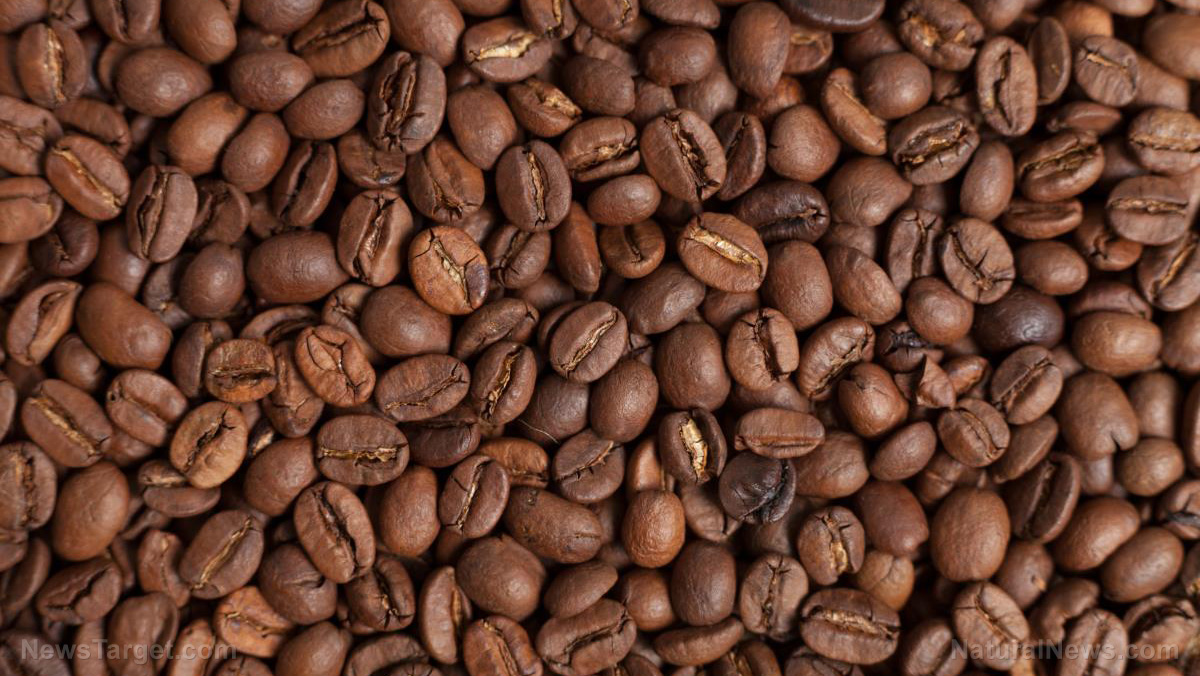Coffee supports the gall bladder and reduces liver cancer, as revealed in new meta-analysis
09/25/2017 / By Lance D Johanson

A cup of coffee a day supports two very important detoxification organs, the liver and gall bladder. The properties of organic coffee bean communicate a cleansing effect to the human body. Organic coffee is revered as a therapeutic agent in Gerson Therapy cancer treatment clinics and is used via enema to quickly stimulate detoxification of the liver. (Note: This detoxification practice should be learned from a trained healthcare provider. This practice requires great nutritional care to replenish the body throughout the detoxification process.)
Now an eighteen study meta-analysis from the PubMed and EMBASE databases finds that one cup of coffee per day is associated with a 15 percent reduction in liver cancer risk. In all the studies, coffee consumption was assessed before outcome, preventing recall bias. The researchers note that consuming more than one cup per day did not provide greater benefit, suggesting that moderation is important. The researchers established a dose-response relationship by using a restricted cubic spline model and multivariate random-effect meta-regression while ruling out confounding factors such as smoking status and incidence of hepatitis. The only factors that the analysis couldn’t control were type of coffee bean consumed and individual metabolism of caffeine. Their findings shed light on the health benefits of simple coffee, consumed in moderation.
Coffee reduces risk of fibrosis and cirrhosis of the liver and prevents gallstone formation
Coffee improves lipid metabolism regulation in the body and decreases the rate of liver steatosis, bringing down inflammation and reducing the risk of fibrosis and cirrhosis of the liver. Chronic liver disease brings about a painful death, but can be better prevented by consumption of plant-based molecules that assist the liver. Coffee’s diterpenes content provide anti-carcinogenic effects. Coffee’s phenolic compounds are both antioxidant and anti-inflammatory, benefitting cellular health. Mainstream cancer treatments bypass the importance of detoxifying the liver to restore the body. Something as simple as coffee or even licorice root extract (Glycyrrhizin) can prevent cirrhosis.

Coffee also has a positive impact in the gall bladder. Coffee’s anti-inflammatory effects help prevent the formation of gall stones. Cholesterol may crystallize in bile, but coffee’s unique properties stop this process, preventing the formation of gallstones. Coffee consumption also initiates the release of cholecystokinin in the body, contracting the smooth muscles of the gallbladder. This action helps eliminate waste.
Natural caffeine content of coffee makes the beverage more therapeutic
One of the most overlooked benefits of coffee is its natural caffeine content, which has been shown to reduce fibrosis in vitro and in animal studies. The study authors cited multiple studies and wrote that caffeine inhibits “TGF-beta-induced CTGF (Connective Tissue Growth Factor) expression in hepatocytes by stimulation of degradation of the TGF-beta effector SMAD 2, inhibition of SMAD3 phosphorylation and up-regulation of the PPARgamma-receptor, as well as increased activity of superoxide dismutase and catalase in the liver and increased expression of Nrf2.” The meta-analysis showed that unadulterated coffee with caffeine has a more protective effect on the liver than decaffeinated varieties. This is because the caffeine metabolite paraxanthine helps down-regulate the expression of the fibrogenic protein CTGF in hepatic stellate cells. Likewise, coffee’s chlorogenic acids help decrease expression of inflammatory cytokies and collagen I and collagen III, preventing liver fibrosis.
Coffee is more than a beverage; it is teeming with medicinal properties that help protect the liver. Could you imagine what would be possible if mainstream oncology started to help patients detoxify their liver and implement real plant-based strategies that protect this vital organ for long term health? Visit Oncology.News for more on implementing real strategies to heal cancer.
Sources include:
Submit a correction >>
Tagged Under:
anti-inflammatory, Anti-oxidant, cancer, cirrhosis, detox, fibrosis, functional food, gall bladder, Gerson therapy, licorice root, liver disease, liver health, metabolism, natural remedies, organic coffee
This article may contain statements that reflect the opinion of the author





















